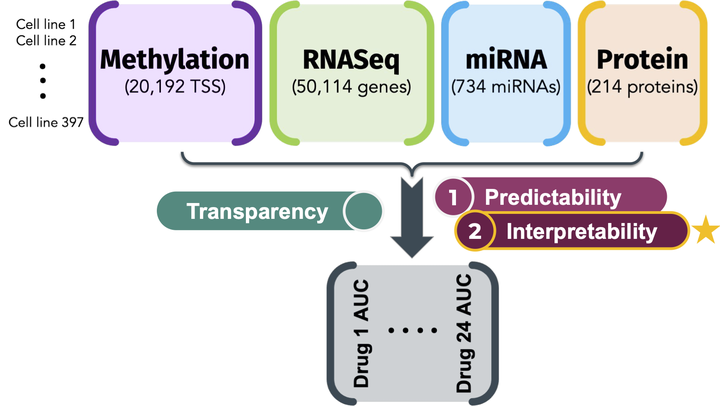A stability-driven protocol for drug response interpretable prediction (staDRIP)

Abstract
Modern cancer -omics and pharmacological data hold great promise in precision cancer medicine for developing individualized patient treatments. However, high heterogeneity and noise in such data pose challenges for predicting the response of cancer cell lines to therapeutic drugs accurately. As a result, arbitrary human judgment calls are rampant throughout the predictive modeling pipeline. In this work, we develop a transparent stability-driven pipeline for drug response interpretable predictions, or staDRIP, which builds upon the PCS framework for veridical data science (Yu and Kumbier, 2020) and mitigates the impact of human judgment calls. Here we use the PCS framework for the first time in cancer research to extract proteins and genes that are important in predicting the drug responses and stable across appropriate data and model perturbations. Out of the 24 most stable proteins we identified using data from the Cancer Cell Line Encyclopedia (CCLE), 18 have been associated with the drug response or identified as a known or possible drug target in previous literature, demonstrating the utility of our stability-driven pipeline for knowledge discovery in cancer drug response prediction modeling.